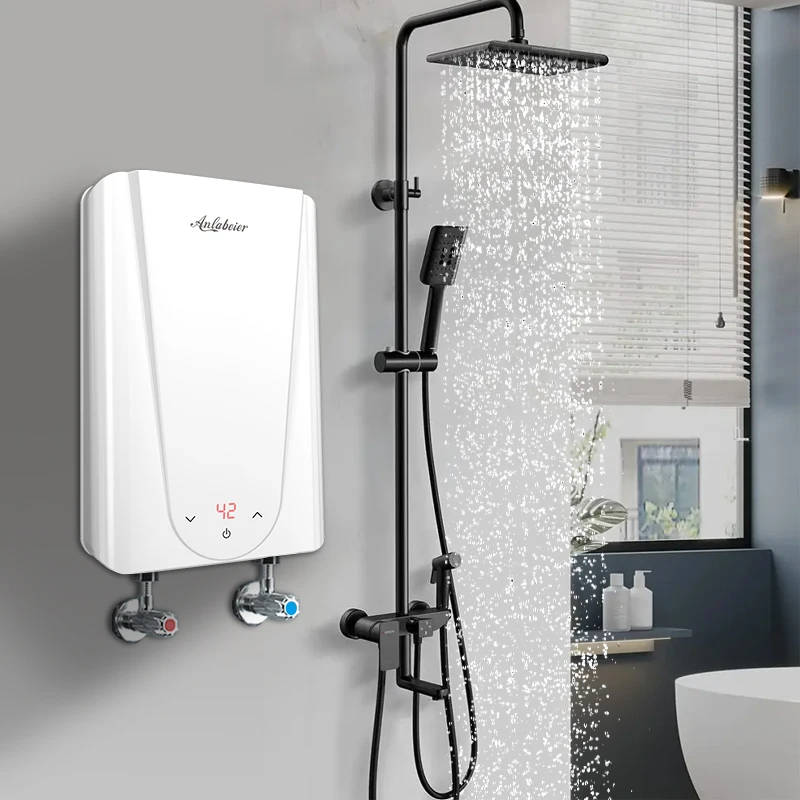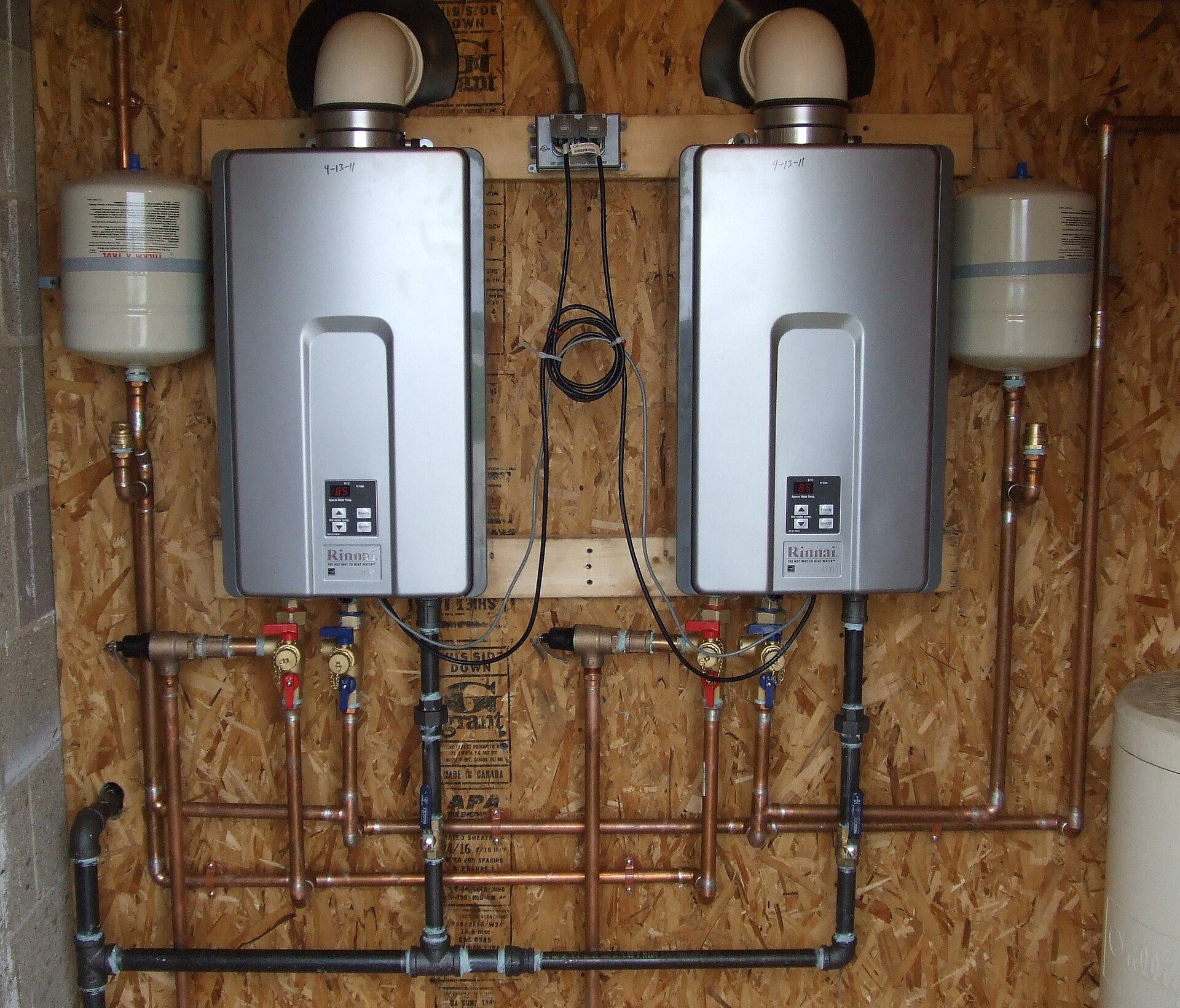A Handbook To The Benefits Of Continuous-Flow Water Heaters
A Handbook To The Benefits Of Continuous-Flow Water Heaters
Blog Article
What're your thoughts on Unveiling the Hot Trend: The Benefits of Tankless Water?

In a world where comfort and performance reign supreme, it's no surprise that house owners are regularly looking for smarter methods to handle their home's energy consumption and comfort. One innovation that has continuously obtained popularity is the tankless water heater. But exactly what makes these systems attract attention from the conventional tank-based designs the majority of us grew up with? Let's dive in and discover the benefits of tankless hot water heater, helping you choose if it's time to make the switch in your house.
Intro
Image this: you step into the shower after a lengthy day, anticipating a comforting cascade of warm water, only to be welcomed by icy droplets because the last person utilized everything up. Audio acquainted? Conventional water heaters save a fixed quantity of hot water, meaning you go to the grace of that storage tank's supply. Tankless systems, on the other hand, warmth water on demand. Say goodbye to running out mid-shower, say goodbye to wrestling with timetables simply to ensure warm water is readily available.
Comprehending Tankless Hot Water Heater
What Are Tankless Water Heaters?
Tankless hot water heater, in some cases called on-demand or instant water heaters, provide warm water just as it's required. Rather than saving gallons of pre-heated water, these systems kick right into activity the minute you activate the tap. Water goes through a heat exchanger, heating up in real-time, suggesting you obtain an undisturbed flow of warm water without the requirement for a large tank resting idly by.
Just how Do They Differ from Traditional Solutions?
Traditional heaters hold a reservoir of warm water, using power to maintain that storage tank at a constant temperature. Tankless devices remove the standing supply, lowering lost energy and the cumbersome footprint of a large cylinder. Basically, you're upgrading from a "stockpile" attitude to a "made-to-order" method.
Typical Sorts Of Tankless Units
Tankless hot water heater generally can be found in 2 selections: gas and electric. Gas designs often tend to deliver higher circulation rates, suitable for larger families, while electrical versions usually offer smaller homes and are normally much easier to set up. In addition, some systems are designed for point-of-use (serving one fixture) while others can deal with the entire home's hot water demands.
Trick Advantages of Tankless Water Heaters
Power Effectiveness and Cost Cost Savings
No more warming a giant tank's well worth of water and keeping it warm all the time. Tankless heaters reduce standby power losses, which can lower utility bills. While the preliminary cost may be greater, the long-lasting savings often validate the financial investment.
3. Space-Saving Design
If your home is short on storage space, eliminating the cumbersome tank frees up useful space. Tankless units are small and can usually be mounted on walls, stashed in corners, or installed in tight energy wardrobes without gobbling up the entire room.
4. Longer Life-span
A properly maintained tankless hot water heater can outlast its tank-based relative. Standard storage tanks may last 10-15 years, while tankless designs can keep downing along for twenty years or more, making them a solid investment gradually.
1. Countless Warm Water Supply
Ever needed to schedule showers so every person gets their reasonable share of warm water? With tankless, that comes to be a thing of the past. As long as the heating unit's flow capacity isn't exceeded, you can take back-to-back showers without turning into a popsicle.
5. Improved Water Top Quality
Saving water in a tank can in some cases lead to sediment build-up or a somewhat "off" preference. With tankless systems, fresh water is warmed on the spot, decreasing the opportunities of debris build-up and potentially supplying cleaner-tasting water.
Considerations Before Changing
Though the benefits are engaging, it's wise to consider a few factors before fully dedicating.
Assessing Your Home's Water Use Patterns
If your home at the same time utilizes several components with high warm water demand, ensure the device's flow price satisfies your requirements. Recognizing your usage patterns assists you pick the right size and sort of tankless heating system.
Maintenance and Treatment Tips
Tankless systems are reasonably reduced upkeep, yet they aren't set-it-and-forget-it appliances.
Normal Cleansing and Descaling
Difficult water minerals can accumulate in the warmth exchanger, influencing performance. Routine descaling (commonly advised each year) keeps the unit running at peak performance.
Yearly Professional Assessments
A yearly checkup from a specialist makes sure small problems are caught early. They'll analyze the system's performance, look for leaks, and assist keep optimum effectiveness.
First Financial Investment Prices
Tankless heating systems generally include a higher in advance price. Between the unit itself and potential installation alterations, the first expense might provide you sticker shock. But bear in mind to watch it as a long-lasting investment.
Installment Demands
Depending on your home's framework, you may need additional electrical capacity or gas line upgrades. Ensure you comprehend the setup requirements and talk to an expert to prevent shocks.
Making Certain Correct Air Flow
For gas designs, appropriate ventilation is vital to safely expel exhaust gases. See to it venting systems are clean and appropriately installed to avoid any kind of possible safety hazards.
Comparing Different Brands and Designs
Not all tankless hot water heater are produced equivalent.
Looking Into Dependable Manufacturers
Look for trusted brands with a background of creating quality devices. A trustworthy supplier often supplies better consumer support and longer service warranties.
Installation: Do It Yourself or Expert?
While some property owners relish dealing with jobs themselves, tankless installment could not be the very best time to break out the tool kit.
Pros and Cons of Do It Yourself Installation
A DIY set up could conserve money, however it includes threats. Inaccurate installment can result in inadequacy or safety and security worries. If you're handy and have experience, it might be feasible-- but wage caution.
Reading Evaluations and Individual Comments
User evaluations and feedback from neighbors or buddies who have actually gone tankless can offer beneficial insights. Sometimes, real-life experiences can be more informing than advertising brochures.
When to Call a Specialist Plumbing Technician
For the majority of, calling a professional ensures every little thing's done properly. A professional plumbing technician understands regional codes, sizing needs, and venting specifications, reducing the danger of incidents.
Making the most of Efficiency
You have actually purchased a tankless device-- currently optimize its efficiency.
Optimal Temperature Setups
Most people establish their units in between 120-140 F. Readjusting the temperature level can boost convenience and financial savings. Experiment to locate a pleasant place that does not throw away power.
Coupling With Low-Flow Fixtures
Intend to extend your device's capacities? Take into consideration setting up low-flow showerheads and faucets. They reduce water use, enabling your tankless system to supply a consistent stream of hot water without stressing.
Environmental Influence
Tankless hot water heater align with greener living goals.
Lowered Carbon Impact
By using much less energy and only home heating water as required, tankless systems can reduce your home's carbon impact, decreasing your ecological impact.
Saving Natural Resources
Less power intake and less wasted warm water translate right into less natural resources being made use of, an environmental win-win.
Who Profits Most from Tankless Heating units?
The appeal of tankless heating units is that they can fit a range of families.
Huge Family Members vs. Solitary Occupants
Big households may love the unlimited hot water supply, while single occupants appreciate the power financial savings from not warming a whole storage tank for just one person's morning shower.
House Owners with Limited Space
If your home is short on square video, losing the bulky storage tank frees up area for other basics-- or perhaps just a lot more breathing space.
Eco-Conscious Customers
Going tankless aligns with eco-friendly worths, guaranteeing you're not wasting power or sources.
Future Trends in Tankless Hot Water Heater
The world of home devices is ever-evolving, and tankless water heaters are no exception.
Advancements in Modern technology
R&D is continuously boosting heat exchangers, making units a lot more reliable and durable. Future designs may be also quieter, extra compact, and better suited for varying climates.
Smart Home Combination
Envision readjusting your hot water heater's temperature level using an application or obtaining upkeep signals on your phone. As clever home tech developments, we'll see more connectivity and convenience.
Conclusion
Choosing a tankless water heater is greater than just updating your home's hot water system; it's buying lasting convenience, energy performance, and a greener way of living. By considering your home's water usage, being mindful of installation needs, and dedicating to normal maintenance, you can delight in a stable stream of warm water without the baggage of a large tank. As technology evolves, you can look forward to even smarter, more effective tankless remedies that not only make your life less complicated but likewise profit the earth.
Why You Should Consider a Tankless Water Heater for Your Home
Energy Efficiency and Cost Savings
Tankless water heaters, also known as on-demand water heaters, heat water only when needed. This means they don't waste energy keeping a tank of water hot constantly. This efficiency translates into substantial cost savings on your monthly energy bills.
Endless Hot Water Supply
One of the significant advantages of tankless water heaters is their ability to provide a continuous supply of hot water. Traditional tank water heaters have a limited capacity and can run out of hot water, especially during peak usage times. In contrast, tankless water heaters can provide an endless stream of hot water, making them ideal for larger families or homes with high water usage.
Space-Saving Design
Tankless water heaters are compact and take up significantly less space compared to traditional tank heaters. They can be installed on walls, under cabinets, or even outside, freeing up valuable space in your home. This makes tankless water heaters a great option for smaller homes or properties with limited space for a traditional water heater.
Longer Lifespan and Lower Maintenance
Tankless water heaters typically have a longer lifespan compared to traditional tank heaters. They can last up to 20 years or more with proper maintenance. Additionally, tankless systems are designed with replaceable parts, which can extend their lifespan further and reduce long-term maintenance costs.
Environmentally Friendly
Reducing energy consumption not only saves you money but also benefits the environment. Tankless water heaters contribute to a smaller carbon footprint by using less energy to heat water. Their energy efficiency and ability to minimize standby heat loss make them an eco-friendly choice for environmentally conscious homeowners.
Customized Temperature Control
Tankless water heaters offer precise temperature control, allowing you to set the desired temperature to meet your specific needs. This level of customization ensures you always have water at the perfect temperature for your comfort and usage requirements.
https://beantownservices.com/blog/consider-tankless-water-heater-for-your-home

I'm certainly very intrigued by Pros and Cons of Tankless Water Heater and I'm hoping you enjoyed the post. Sharing is caring. Helping people is fun. We thank you for your readership.
Book Maintenance Report this page